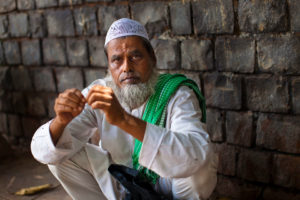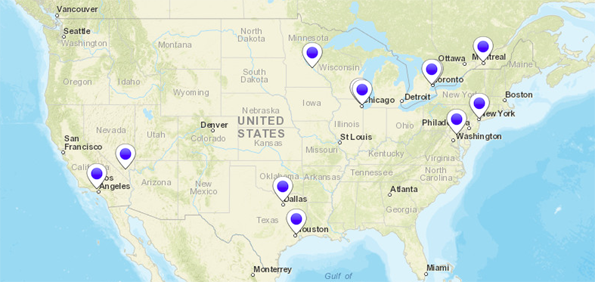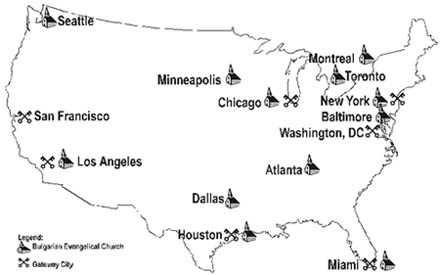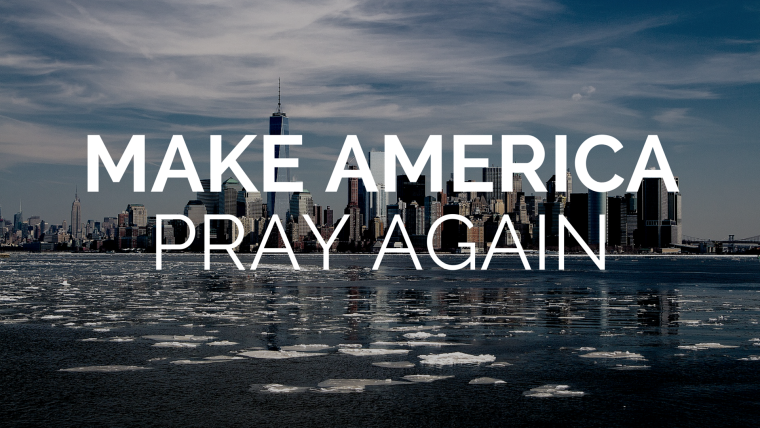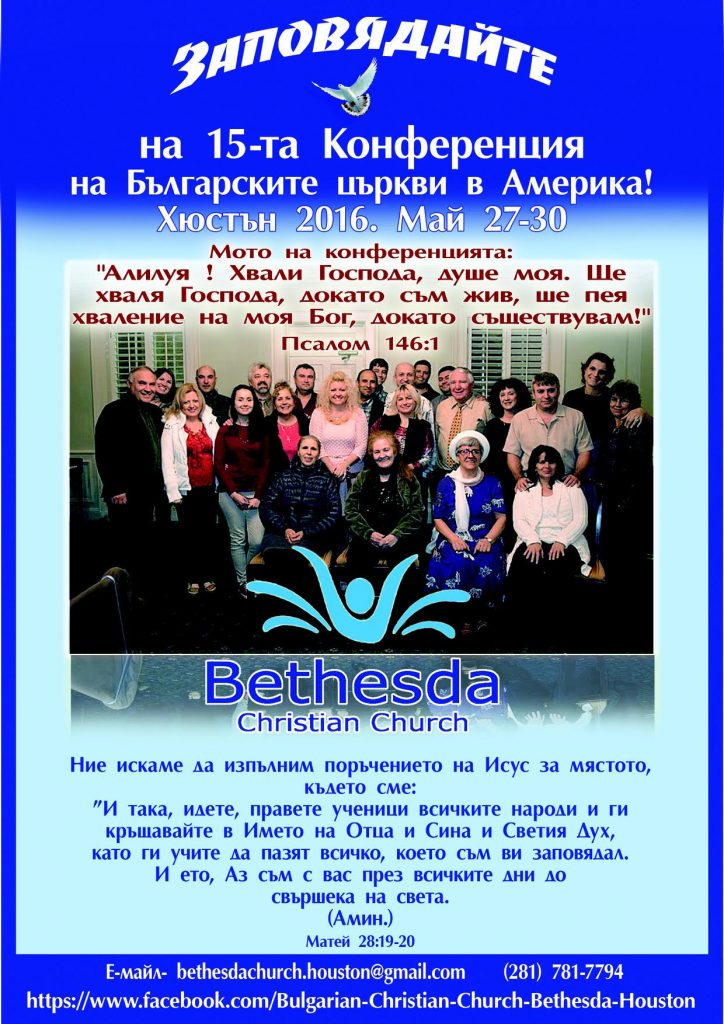RAMADAN: How to reach Muslims with the Gospel?
Over 1 billion Muslims around the world are now observing Ramadan, a month of fasting and reflection. While most adherents to Islam are spending their holiday on personal discipline and dedication, more extreme factions are using the time of year to call for violence against Christians.
Ruth Kramer of Mission Network News reports:
“During Ramadan, the jihadists are calling for holy war. They’re calling it kind of an obligatory act of worship. What you typically see during Ramadan is a real spike in the violence. On the day that Ramadan began, jihadists attacked a bus that was filled with Coptic Christians in Egypt and killed 29 of them; about half of those were children as young as two years old.”
In the face of such violence, as we’re bombarded by stories of increasing barbarism, how should the body of Christ respond?
“One of the biggest tools we have in our tool chest is prayer, and we just don’t know how to pray for Muslims, how to love Muslims, to come alongside them and say there is another way.”
“If we knew how to pray for Muslims, and we joined together in prayer, imagine what God could do through that.”
To help us learn to pray for our Muslim neighbors, Prayercast, a branch of OneWay Ministries, is hosting the Ramadan Prayer Challenge.
The campaign sends daily prayer notes directly to your smartphone, focusing on specific regions and concerns of Muslim people. They’re inviting Christians across the world to unite in prayer for the next month, to ask “with one voice that God would shatter the deception of Islam with the presence and truth of Jesus Christ.”
How to Evangelize a Muslim
- The testimony of the Gospels provides the most reliable witness to Christ. Preach the Gospel as it is! Do not soft-pedal around biblical terminology to please Muslim hearers. Be clear about what you believe and why you believe it. Know the Scriptures well, and know the confessions and what exactly you believe (catechisms). The more you know about your faith, the easier it is to talk with Muslims.
- There is no gospel in Islam. The Qur’an clearly contradicts the essence of biblical Christianity and rejects the triune nature of God, disfigures the biblical doctrines of the person of Christ and denies justification through faith on account of the work of Christ on the cross. While claiming to be the perpetual religion of nature and history, following in the footsteps of Christianity, it attempts to justify its claims by asserting that the Word of God, revealed in the New and Old Testament, is corrupted. Our apologetic discussion with Muslims should be to defend the Scriptures and prove that the Scriptures aren’t corrupt as Muslims claim. Our goal is to open up their minds a bit so that they can start reading the Gospels for an eyewitness or a companion of an eyewitness to the real Jesus.
- Always ask them the classic evangelistic questions. ‘What about your salvation?’ ‘Can you be certain of this?’ ‘If you were to die, can you be certain you’d enter heaven at some point?’ Their response is always, “No, I couldn’t be certain, nor do I care.”
- Most western missionaries are result oriented; instead you should be concerned about preaching the Gospel correctly (as it is). The essence of Muslim evangelism is accurate communication about sin and grace: simply and clearly. Talk about the law and the gospel, not about infralapsarianism and divine simplicity! Don’t compare the Bible with the Quran. That comes later!
- Always remember that you are talking to Muslims. Avoid the use of Christian jargon. Speak about real sin, real guilt, real shed blood! Do not be ashamed to use Jesus’ direct and indirect titles clearly such as ‘Son of God’ ‘Lamb of God’ ‘New Adam’ ‘I AM – YAHWEH’ ‘Savior’ ‘Almighty God’.
- Use tact and be charitable! Don’t talk about reprobation with a Muslim or a new convert who has just lost an unbelieving family member. Be kind and courteous! Many Muslims act and speak out of ignorance, not malice.
- Be sensitive to their past – if they’ve had a bad experience with Christians, missionaries or churches, struggled with a particular sin etc., be understanding and compassionate! Muslims hate self-righteousness, and rightly so! Do not soft-pedal the law and the guilt of sin, but make sure they understand that you are a justified sinner, not a self-righteous “know it all” who is here to correct them!
- Muslims will ask you many questions about your faith. Don’t feel like you have to answer all of their questions in one day. However, make sure they hear your answers to one or two questions clearly. Stick with the subject – don’t get sidetracked. When the conversation wanders, pull it back to center stage – the law and the gospel.
- Muslims will ask you to comment on their faith. Don’t go there; they will not benefit from your criticism (or feigned approval) of other religions. Your job isn’t to debunk Islam but to give a clear witness to the truth of the Gospel. Instead of letting them drag you into the topic, turn the tables and ask them questions. Let them articulate their own understandings of the religious themes you are discussing; let what you communicate be the plain truth of Christian doctrines without enumerating how Islam is wrong.
- The message of the Gospel offends Muslims. It is okay! Don’t worry! God will take care of the hearer. It is His message. Muslims will not convert to Christ if they are not offended by the message of the Gospel. Offend them by being very clear about the teachings of Christ!
- Do not use any ‘Muslim friendly’ bible translations. ‘Muslims friendly’ bible translations are very deceptive! They are not true to the original Scriptures. Muslims see it as a form of deception by missionaries!
- Muslim evangelism is not about winning an argument, but leading Muslims to Christ with the Gospel. Discussions may get heated and intense at times – that’s okay. But the purpose of Muslim evangelism is not to show why you are right and Islam is wrong. It is to communicate the truth of the gospel! The message is to be the offence! Not you!
- When Muslims are apathetic about sin – use the law. When Muslims have doubts or are skeptical – use basic apologetic arguments. When Muslims express guilt for sin – present the Gospel.
- Evangelism is about leading Muslims to Christ. Convincing non-Christians or Evangelicals that Reformed theology is true, falls under the heading of polemics. Don’t confuse the two.
- When talking to Muslims stick with what all Christians hold in common wherever possible. Leave the internecine fighting among Christians aside when talking to Muslims. A Muslim will not care so much about differences between the Catholics and the Protestants or Lutherans and Baptists. Issues such as the exact meaning of the Lord’s Supper or methods of baptism should be addressed later, during discipleship!
- Wherever possible, when talking to Muslims speak about Christianity as factually true – “Jesus did this,” “Jesus said this,” “people heard and saw him,” etc. Keep away from the subjective line of approach– “it works for me,” “this is how I feel about it,” this is my testimony.”
- Before meeting with your Muslim friends pray for wisdom.
- Muslims will respect the text you quote, but not your personal opinion. Trust in the power of God the Holy Spirit working through the word! Cite texts directly from the Scriptures with attribution. Jesus says, Paul says…. It will not help Muslims to hear your personal opinion on biblical issues. So, don’t say “I think,” or “it seems to me” or “I feel like…” Muslims interpret your thoughts, your take on things or your feelings as part of the corruption of the Bible.
- Don’t rush things with Muslims. Just because a Muslim is not ready to trust in Christ after one encounter does not mean that effective evangelism has not taken place. Pre-evangelism is equally vital. You may plant, but someone else may have to water! Always remember that it is not us who convert the Muslims to Christ but God Himself (in His time)!
- Remember that evangelism isn’t complete after you first present the Gospel message to a Muslim. Evangelism has to continue even after they repent and give their lives to Christ. They have to sit under the ministry of the Word. Evangelism of a Muslim is complete only after they are baptized, brought to the Lord’s Supper and sat under the preaching of the Word at church. In other words, evangelism never ends. Discipleship is evangelism.
- Treat Muslims as objects of concern, not notches in your belt! Establish relationships and friendships with Muslims whenever and wherever possible.
- Don’t forget that a prophet is without honor in his own home. The chances of Muslim converts leading their own unbelieving family members (or someone close to them) to Christ by themselves is remote. Encourage them as they give witness to what they have learned, but also pray for God to bring other people into the picture to help evangelize their families.
- Don’t force things. If your Muslim friends balk, ridicule and otherwise are not interested, back off. Find another time and place. If after repeated attempts to communicate the gospel, and someone still shows an unwillingness to hear what you have to say, “shake the dust off your feet and move on to a new town!”
- Be willing to get your Muslim friends the resources they need: be willing to provide them with a Bible (not just a New Testament), the right book to read, and certainly an invitation to your home and later an invitation to attend your church or to a Bible study, etc. Never ever use a Muslim friendly bible translation. These translations are a product of some western mission agencies without any support from the national churches who know their context best.
- Pray for opportunities to evangelize Muslims. Make sure to let your Muslim friends know that you regularly attend a church. Do not disconnect your evangelism effort from the church. Pray for your church – that God would bless the preaching of his word, that he would bring Muslims into our midst, and that he would bless the church with growth.
- You don’t have to become a practical Arminian to be a faithful evangelist! A Christian approach to Muslim evangelism simply means telling Muslims the truth in love without changing it. Trust that God the Holy Spirit will penetrate hearts and minds of Muslims with “the Gospel”
- Muslims love to sing Islamic hymns that tell the stories of the Quran. Islamic hymn singing is singing the words of the Quran. Show your Muslim friends some samples of Christian biblical songs with verses directly taken from Scriptures. In other words, sing the Bible to them! The role of music in human culture is to join people together. Biblically we are commanded to sing the praises of Christ. There are 694 references to singing or music making in Holy Scriptures. Participatory singing is a very significant matter biblically. There will be no singing in Hell, but the saints in Heaven will sing everlastingly. That is really amazing and remarkable! Let us show Muslims what we will be doing in Heaven.
- “Fear God and give Him Glory, because the hour of His judgment has come, and Worship Him who made heaven and earth, the sea and the springs of water.” (Rev. 14:7)
Bulgarian Evangelical Churches in America (2017 Report)
CURRENTLY ACTIVE CHURCHES/CONGREGATIONS:
Bulgarian Evangelical Churches in Chicago (2017 Report)
Bulgarian Evangelical Churches in Texas (2017 Report)
Bulgarian Evangelical Churches – West Coast (2017 Report)
- Los Angeles (occasional/outreach of the Foursquare Church – Mission Hills, CA)
- Las Vegas (outreach of the Foursquare Church – http://lasvegaschurch.tv)
- San Francisco (occasional/inactive since 2012, Berkeley University/Concord, CA)
- Phoenix, Arizona
Bulgarian Evangelical Churches Canada (2017 Report)
- Toronto (inactive since 2007)
- Toronto/Slavic (active since 2009)
- Montreal (occasional/inactive since 2012)
Atlanta (active since 1996)
CURRENTLY INACTIVE CHURCHES/CONGREGATIONS:
- New York, NY (currently inactive)
- Buffalo, NY (occasional/inactive)
- Jacksonville, FL (occasional/inactive since 2014)
- Ft. Lauderdale / Miami (currently inactive)
- Washington State, Seattle area (currently inactive)
- Minneapolis, MN (occasional/inactive since 2015)
READ MORE:
- First Bulgarian Church in Chicago Opened in 1907
- Gateway Cities for Bulgarian Evangelical Churches
- How to Start a Bulgarian Church in America from A-to-Z
- Unrealized Spiritual Harvest as a Paradigm for Cross-Cultural Ministries among Migrant and Disfranchised Ethnic Groups in America Today
The Unrealized Spiritual Harvest of Bulgarian Churches in North America
 ….A closer examination of the ministry and structure of the network of Bulgarian churches in North America will give answers to essential issues of cross-cultural evangelism and ministry for the Church of God. Unfortunately, until now very little has proven effective in exploring, pursuing and implementing cross-cultural paradigms within the ministry opportunities in communities formed by immigrants from post-Communist countries. As a result, these communities have remained untouched by the eldership and resources available within the Church of God denomination. There are presently no leaders trained by the Church of God for the needs of these migrant communities. Thus, a great urban harvest in large metropolises, where the Church of God has not been historically present in a strong way, remains ungathered. Although, through these communities, the Church of God has the unique opportunity to experience the post-Communist revival from Eastern Europe in a local Western setting… (p.84, Chapter III: Contextual Assessment, Historical Background, Structural Analyses and Demographics of Immigration in a Paradigm for Cross-Cultural Ministries among Migrant and Disfranchised Ethnic Groups in America Today) Read complete paper (PDF)
….A closer examination of the ministry and structure of the network of Bulgarian churches in North America will give answers to essential issues of cross-cultural evangelism and ministry for the Church of God. Unfortunately, until now very little has proven effective in exploring, pursuing and implementing cross-cultural paradigms within the ministry opportunities in communities formed by immigrants from post-Communist countries. As a result, these communities have remained untouched by the eldership and resources available within the Church of God denomination. There are presently no leaders trained by the Church of God for the needs of these migrant communities. Thus, a great urban harvest in large metropolises, where the Church of God has not been historically present in a strong way, remains ungathered. Although, through these communities, the Church of God has the unique opportunity to experience the post-Communist revival from Eastern Europe in a local Western setting… (p.84, Chapter III: Contextual Assessment, Historical Background, Structural Analyses and Demographics of Immigration in a Paradigm for Cross-Cultural Ministries among Migrant and Disfranchised Ethnic Groups in America Today) Read complete paper (PDF)
How to Start a Bulgarian Church in America from A-to-Z
Sanctuary Gateway Cities for Eastern European Slavic and Bulgarian Immigrant Churches in North America
 Since 1994 Cup & Cross Ministries International has assisted churches across the United States and has strategically planned and developed a process which incorporates Bulgarian Evangelical Churches in North America. The first success of this endeavor was the establishment of the Bulgarian Evangelical Church of God in Chicago in 1995.
Since 1994 Cup & Cross Ministries International has assisted churches across the United States and has strategically planned and developed a process which incorporates Bulgarian Evangelical Churches in North America. The first success of this endeavor was the establishment of the Bulgarian Evangelical Church of God in Chicago in 1995.
The Bulgarian Church of God in Chicago followed a rich century-long tradition, which began with the establishing of Bulgarian churches and missions in 1907. (read the history) Consecutively, our 1995 Church Starting Paradigm was successfully used in various studies and models in 2003. The program was continuously improved in the following decade, proposing an effective model for leading and managing growing Bulgarian churches.
Based on the Gateway cities in North America and their relations to the Bulgarian communities across the continent, it proposed a prognosis toward establishing Bulgarian churches (see it here) and outlined the perimeters of their processes and dynamics in the near future (read in detail). Since 1995 twelve more Bulgarian churches have been started in strategic immigration gateways across the United States and Canada. For the past four years our team have been involved in the process of establishing Bulgarian congregations in Atlanta, Phoenix and San Francisco. Read complete paper (PDF)
Toward Context of Ministry Applications
In the beginning of the 21st century the Protestant Church in Bulgaria is entering a new constitutional era in the history of the country. Since the fall of the Berlin Wall, the political and economic challenges in Eastern Europe have strongly affected the Evangelical Churches. More than ever before, they are in need of reformation in doctrines and praxes in order to adjust to a style of worship liberated from the dictatorship of the communist regime. In order to guarantee the religious freedom for our young, democratic society, the Protestant Movement in Bulgaria needs a more dynamic representation. Such can be provided only by people who will create a balance between the old atheistic structures and the new contemporary, nontraditional style of ministry.
Similar is the case among Bulgarian Evangelical Churches in North America which also share analogue dynamics with congregations of Latin American immigrants. Several facts are obvious from such comparison. It is apparent that Bulgarian immigrants come to North America in ways similar as other immigrant groups. Large cities which are gateways for immigrants are probable to become a settlement for Bulgarian immigrants due to the availability of jobs, affordable lodging and other immigrants from the same ethnic group.
The emerging Bulgarian immigrant communities share religious similarities and belongingness which are factors helping to form the communities. As a result of this formation process, the Bulgarian Evangelical Churches in North America emerge. It also seems natural to suggest that as this process continues, Bulgarian Evangelical Churches will be formed in other gateway cities and other large cities which meet the requirements to become a gateway city. Such has been the case with Latin American churches. If this is true, it should be proposed that the Bulgarian Churches in North America follow a strategy for church planting and growth which targets these types of cities.
It is encouraging, at the same time, to observer that one of the positive estimates provided by our doctoral project is also coming to reality. In 2002-2004, based on analyses provided by the New Religious Immigrants Project, our research suggested that the next Bulgarian Evangelical Church will be established in the last of the Seven American Gateway Cities which was still without a Bulgarian Church, namely the city of San Francisco. Our resent visit in the area of the Bay Area showed that this prediction is already progressing into a reality as the Bulgarian Diaspora there is already producing a Bible study group out of uniting Bulgarian college students from Barkley and young computer professionals in the area.
Geographical Location of Bulgarian American Churches and Gateway Cities.
Currently, Bulgarian Evangelical Churches are located in cities which have a high concentration of foreign-born immigrants. Such cities are called gateway cities, a large immigrant point-of-entry city to the United States. Immigrants typically enter the United States through one of these cities and settle there. Such cities contain over half of the foreign-born population in the United States. There are Bulgarian Evangelical Churches active in six of the seven gateway cities as follows:
Bulgarian Evangelical Churches in Gateway Cities
| Gateway City | Foreign Born | Percent of Foreign Born | Bulgarian Church |
| 1. New York, NY | 3,657,269 | 18.7% | Yes |
| 2. Los Angeles, CA | 3,944,828 | 27.1% | Yes |
| 3. Houston, TX | 460,380 | 12.3% | Yes |
| 4. Washington, DC | 578,786 | 8.6% | No |
| 5. Miami, FL | 1,072,843 | 33.6% | Yes |
| 6. Chicago, IL | 914,58 | 11.1% | Yes |
| 7. San Francisco, CA | 1,250,693 | 20.0% | No |
Several facts are obvious from the above comparison. It is apparent that Bulgarian immigrants come to North America in ways similar to other immigrant groups, channeled through the listed gateway cities. Large cities which are gateways are more probable to become a settlement for Bulgarian immigrants due to the availability of jobs, lodging and other immigrants from the same ethnic group. The emerging Bulgarian immigrant communities share religious similarities and belongingness which are factors helping to form the communities. As a result of this process of formation of Bulgarian immigrant communities, the Bulgarian Evangelical Churches in North America emerge. It also seems natural to suggest that as this process continues, Bulgarian Evangelical Churches will be formed in the remaining two gateway cities (Washington, D.C. and San Francisco) and other large cities which meet the requirements to become a gateway city (for example, the city Atlanta). If this is true, it should be proposed that the Bulgarian Churches in North America follow a strategy for church planting and growth which targets this type of cities. With all this in mind, the Unrealized Spiritual Harvest of Bulgarian Churches in North America remains unforgiving in history…
Resources for Further Study:
- Seven Churches of Revelation
- How to Start a Bulgarian Church in America from A-to-Z
- Bulgarian Churches in North America: Contextual Assessment
- Bulgarian Churches in North America: Statement of Problem
Christmas Book Sale: Bulgarian Congregations in North America
In the past five years since 2011, we have authored over two dozen books related to our ministry and mission work in Eastern Europe. As several of the prints are now almost exhausted and second/third editions and several new titles are under way, we are releasing all currently available editions in a Christmas sale through the month of December. All titles are available at up to 30% off and Amazon offers free shipping and extra savings for bundle purchases.
Our book available on sale today is:
Bulgarian Churches in North America: The Unrealized Spiritual Harvest as a Paradigm for Cross-Cultural Ministries among Migrant and Disfranchised Ethnic Groups in America Today
 ….A closer examination of the ministry and structure of the network of Bulgarian churches in North America will give answers to essential issues of cross-cultural evangelism and ministry for the Church of God. Unfortunately, until now very little has proven effective in exploring, pursuing and implementing cross-cultural paradigms within the ministry opportunities in communities formed by immigrants from post-Communist countries. As a result, these communities have remained untouched by the eldership and resources available within the Church of God denomination. There are presently no leaders trained by the Church of God for the needs of these migrant communities. Thus, a great urban harvest in large metropolises, where the Church of God has not been historically present in a strong way, remains ungathered. Although, through these communities, the Church of God has the unique opportunity to experience the post-Communist revival from Eastern Europe in a local Western setting… (p.84, Chapter III: Contextual Assessment, Historical Background, Structural Analyses and Demographics of Immigration in a Paradigm for Cross-Cultural Ministries among Migrant and Disfranchised Ethnic Groups in America Today) Read complete paper (PDF)
….A closer examination of the ministry and structure of the network of Bulgarian churches in North America will give answers to essential issues of cross-cultural evangelism and ministry for the Church of God. Unfortunately, until now very little has proven effective in exploring, pursuing and implementing cross-cultural paradigms within the ministry opportunities in communities formed by immigrants from post-Communist countries. As a result, these communities have remained untouched by the eldership and resources available within the Church of God denomination. There are presently no leaders trained by the Church of God for the needs of these migrant communities. Thus, a great urban harvest in large metropolises, where the Church of God has not been historically present in a strong way, remains ungathered. Although, through these communities, the Church of God has the unique opportunity to experience the post-Communist revival from Eastern Europe in a local Western setting… (p.84, Chapter III: Contextual Assessment, Historical Background, Structural Analyses and Demographics of Immigration in a Paradigm for Cross-Cultural Ministries among Migrant and Disfranchised Ethnic Groups in America Today) Read complete paper (PDF)
How to Start a Bulgarian Church in America from A-to-Z
Make America PRAY Again
Bulgarian Churches in North America: The Unrealized Spiritual Harvest as a Paradigm for Cross-Cultural Ministries among Migrant and Disfranchised Ethnic Groups in America Today
 ….A closer examination of the ministry and structure of the network of Bulgarian churches in North America will give answers to essential issues of cross-cultural evangelism and ministry for the Church of God. Unfortunately, until now very little has proven effective in exploring, pursuing and implementing cross-cultural paradigms within the ministry opportunities in communities formed by immigrants from post-Communist countries. As a result, these communities have remained untouched by the eldership and resources available within the Church of God denomination. There are presently no leaders trained by the Church of God for the needs of these migrant communities. Thus, a great urban harvest in large metropolises, where the Church of God has not been historically present in a strong way, remains ungathered. Although, through these communities, the Church of God has the unique opportunity to experience the post-Communist revival from Eastern Europe in a local Western setting… (p.84, Chapter III: Contextual Assessment, Historical Background, Structural Analyses and Demographics of Immigration in a Paradigm for Cross-Cultural Ministries among Migrant and Disfranchised Ethnic Groups in America Today) Read complete paper (PDF)
….A closer examination of the ministry and structure of the network of Bulgarian churches in North America will give answers to essential issues of cross-cultural evangelism and ministry for the Church of God. Unfortunately, until now very little has proven effective in exploring, pursuing and implementing cross-cultural paradigms within the ministry opportunities in communities formed by immigrants from post-Communist countries. As a result, these communities have remained untouched by the eldership and resources available within the Church of God denomination. There are presently no leaders trained by the Church of God for the needs of these migrant communities. Thus, a great urban harvest in large metropolises, where the Church of God has not been historically present in a strong way, remains ungathered. Although, through these communities, the Church of God has the unique opportunity to experience the post-Communist revival from Eastern Europe in a local Western setting… (p.84, Chapter III: Contextual Assessment, Historical Background, Structural Analyses and Demographics of Immigration in a Paradigm for Cross-Cultural Ministries among Migrant and Disfranchised Ethnic Groups in America Today) Read complete paper (PDF)
How to Start a Bulgarian Church in America from A-to-Z
15th Annual Conference of Bulgarian Churches in North America Building Bridges to Church and People in Bulgaria
Speaking in Tongues in America Prior to the Azusa Street Revival of 1906 (Diamonds in the Rough-N-Ready Series)
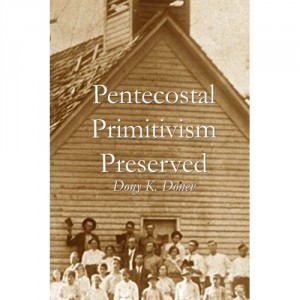
The Azusa street revival swept the globe starting with California
January 1, 1901– The initial phenomenon of speaking in tongues occurred at Parham’s school in Topeka, Kansas
January 6, 1900 – Frank Sanford’s Shiloh school reported that “The gift of tongues has descended”
1896 – Over 100 people baptized in the Shaerer schoolhouse revival conducted by the Christian Union in the North Carolina mountains
1887 – People falling in trances and speaking in tongues were reported at Maria Etter’s revival meetings in Indiana
1874 – Speaking in tongues occurred during healing meetings reported in New York
1873 – William H. Doughty and the Gift People of Rhode Island spoke in tongues
1854 – V. P. Simmons and Robert Boyd reported tongue speaking during Moody’s meetings
8 Things Christian Believers and Churches Can Do in Light of Recent SCOTUS Ruling on LGBT
1. State Level
- Contact your congressman/senator for available options. Write your governor without hesitation
- Texas Governor Greg Abbott signed a bill allowing clergy to refuse to officiate same sex ceremonies
- Texas Attorney General fights back against Supreme Court
- First Amendment Defense Act Sen. Mike Lee of Utah introduced
2. Personal Level
- Inform yourself and your family of the clear Biblical principles for love and holiness applicable in this situation
- Pray daily for the protection of your family and the salvation of many souls
- Be faithful to your husband/wife and children
3. Corporate Level
- Hold on to your Christian standards for doing business
- Support other Christian businesses
- Forgive and forget, but watch and pray
4. Local Church Level
- Join in corporate fasting and praying in the Spirit
- Uphold the Biblical standard of holy living
- Preach the truth as you have received it
- Adopt local church resolutions on the sanctity of the family
5. Denominational Level
- Adopt resolutions on the sanctity of the family applicable to all your churches internationally (not just North America)
- Adopt resolutions on same-sex marriages, transgender, abortions and all similar issues applicable to all your churches internationally (not just North America)
- Stand along members, ministers, local congregations and Christian schools under attack for upholding the Biblical standard of holy living
6. Christian Alliances Level
- Stay informed of all legal protests and options
- Learn about upcoming IRS changes and alternative exempt options
- Consult with legal council about your rights and obligations under the law
- Join with other Christians in legal measures for upholding the Biblical standard of holy living
7. International Organizational Level
- Beware of what Christian churches are doing internationally to protect their members, ministers, local congregations and Christian schools
- Examine your current tax status and consult your CPA, attorney and insurance agents about the various possibilities to protect your church and ministry
- 2015 ANGLICAN CHURCH Communique
- Methodist church Faces Schism Over Same-Sex Marriage
8. Get good insurance with adequate coverage and experience in the matter
• A good example from Brotherhood Mutual Ins.
READ ALSO:
- Statement of the Church of God Regarding Same-Sex Marriage Court Decision
- AFA: 3 things your church must do immediately to protect itself
- Church of God Instructions for Ministers: Marriage and Same-sex Relationship (75th A., 2014)
- SOUTHERN BAPTIST ADF PLAN TO RESIST ANTI-DISCRIMINATION LAWS
- Web-cached copy of ADF PLAN TO RESIST ANTI-DISCRIMINATION LAWS
- Brotherhood Mutual Ins: What should churches and ministries know?
- 6 More Things To Do after the Supreme Court Decision on Gay Marriage
- Why the church should neither cave nor panic?
- How Will the U.S. Supreme Court’s Same-Sex-Marriage Decision Affect Religious Liberty?
- Why Evangelical Churches Need to Address the New Reality?
- Will High-court ruling affect church weddings?


